
Culture
15:59, 15-Sep-2017
Excavation of Chinese playwright Tang Xianzu’s tomb called to a halt
CGTN
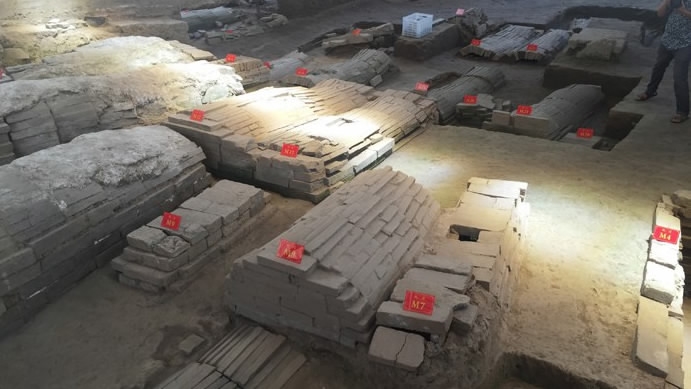
Days after a high-profile press conference announced the excavation of ancient Chinese playwright Tang Xianzu’s tomb in east China’s Jiangxi Province, the archaeological work was suddenly called to a halt by the State Administration of Cultural Heritage.
According to Zhang Ling, an official from the administration, a plan was approved for archaeological work at the site of Tang Xianzu’s family graveyard in April. The plan stated explicit requirements that "the excavation be conducted only on relevant constructions and affiliated relics, without any involvement of the tomb of Tang Xianzu."
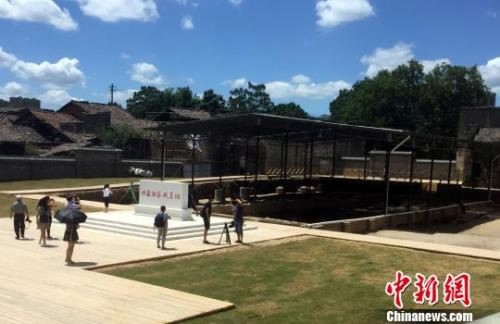
Unearthed graveyard of Tang Xianzu's family. /CNS Photo
Unearthed graveyard of Tang Xianzu's family. /CNS Photo
However, Zhang said Tang’s tomb was "unauthorizedly excavated", and there are also "important archaeological discoveries that were not reported in time".
Why is the excavation suspended?
The sudden suspension has triggered a wide discussion among the public about the principles of archaeological work.
According to Zhang Ling, China does not encourage unearthing ancient tombs, unless it is for the purpose of salvaging relics. The foremost principle of any excavation is to protect.
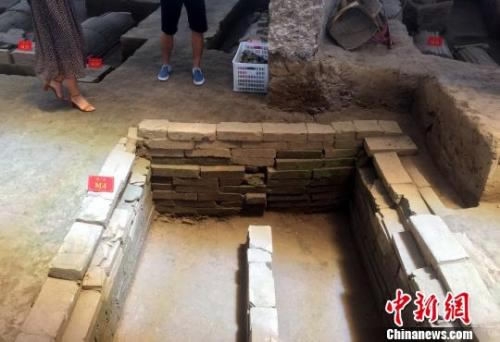
Unearthed graveyard of Tang Xianzu's family. /CNS Photo
Unearthed graveyard of Tang Xianzu's family. /CNS Photo
An example of this principle in play was the excavation of the tomb of Haihunhou, also known as Marquis of Haihun from the Western Han Dynasty (206 BC – 24 AD), one of China's most important archaeological achievements in recent years. Haihunhou’s tomb had been robbed and sabotaged when it was discovered, and archaeologists decided to excavate the site to protect the relics.
Zhang said there are plenty of historical records of the locations of Tang Xianzu’s family graveyard, and with the renovation work at the Wenchangli area going on, the graveyard was "confirmed" rather than "discovered". As the tomb itself was not damaged, the archaeological work should focus more on protection rather than excavation.
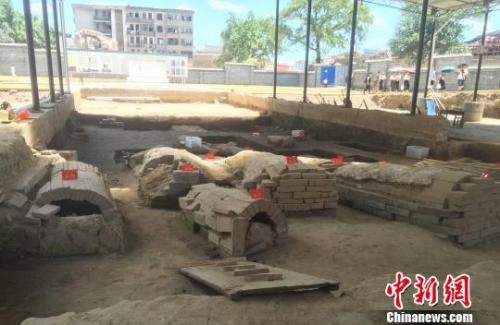
Unearthed graveyard of Tang Xianzu's family. /CNS Photo
Unearthed graveyard of Tang Xianzu's family. /CNS Photo
According to archaeologists, without cutting-edge technology, reckless excavations of ancient tombs could cause disastrous consequences to the relics.
In recent years, the public’s interests in archaeology has risen, with several novels involving tomb robbing becoming best-sellers. The confirmation of Tang’s tomb, after being unveiled to be public, has become an instant hot topic online.
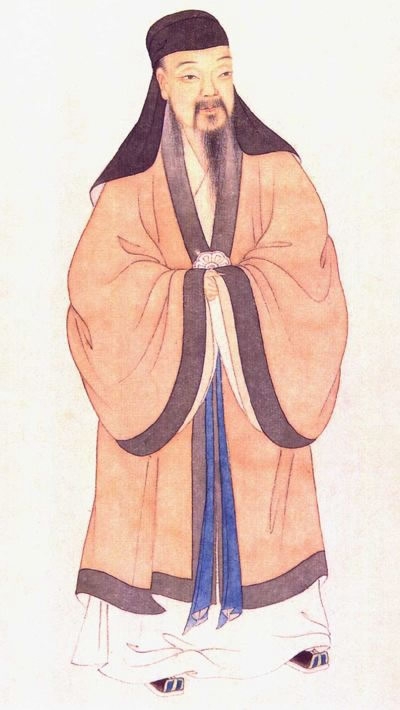
An image of Tang Xianzu, a playwright during the Ming Dynasty. /Photo via Baidu
An image of Tang Xianzu, a playwright during the Ming Dynasty. /Photo via Baidu
Tang Xianzu is one of China's greatest playwrights and his best-known works are collected in the "Four Dreams of Yuming Tang", focused on love and politics. His artistic works were primarily seen in performances of Kunqu Opera, the oldest existing opera in China.
1328km

SITEMAP
Copyright © 2018 CGTN. Beijing ICP prepared NO.16065310-3
Copyright © 2018 CGTN. Beijing ICP prepared NO.16065310-3